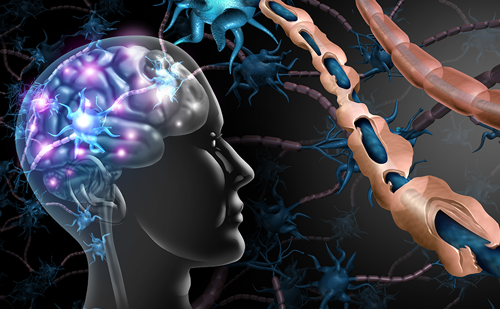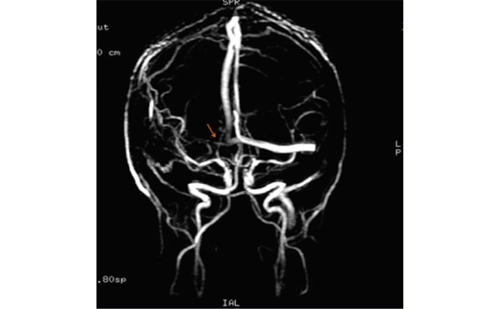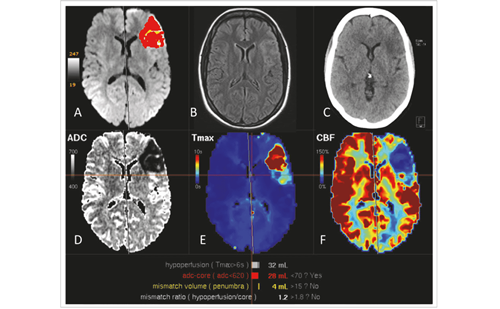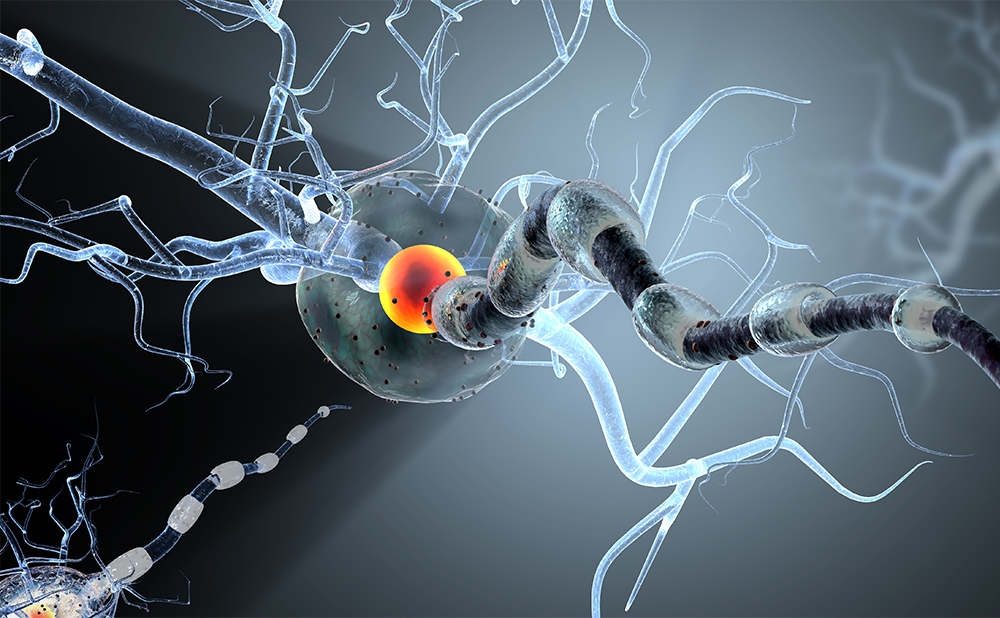Stroke is a major public health burden worldwide that demands continued research to improve treatment and prevention. However, stroke presents a number of practical and ethical challenges to research due to its unpredictability, apoplectic onset, and potential to render individuals incapable of providing informed consent. Disagreements regarding appropriate safeguards for subjects are as old as acute stroke research1–3 and continue to spark debate.4,5
Stroke is a major public health burden worldwide that demands continued research to improve treatment and prevention. However, stroke presents a number of practical and ethical challenges to research due to its unpredictability, apoplectic onset, and potential to render individuals incapable of providing informed consent. Disagreements regarding appropriate safeguards for subjects are as old as acute stroke research1–3 and continue to spark debate.4,5
Discussions of ethical issues in genetics research frequently treat gathering and using genetic information as exceptional.6 The view that genetic information must be handled differently and risks in genetic research are unique arose from a heritage of research into single-gene disorders—generally rare conditions where the relationship between genetic variation and disease is seen in deterministic terms.
Notions of genetic exceptionalism developed from concerns about what happens with information that someone ‘has the gene,’ including concerns about the potential for personal and familial distress were the information to be discovered inadvertently or without sufficient counseling, and about the potential for stigmatization or discrimination if that information were to get into the wrong hands. Concerns that individuals must be in a position to protect themselves against such risks reinforced the more general sense of importance placed on individual control over genetic information.
However, in the genomic era, understanding of the role that genes play in disease and circumstances surrounding the discovery of genetic contributions to risk for developing a disease has changed dramatically. The majority of genetic studies focus on complex disorders in which a specific genetic variant alters the probability of getting a disease, but does so in the context of many other risk factors. In this situation, any piece of genetic information is ultimately less informative, and thus the risk for psychological distress, stigmatization, or discrimination resulting from discovery of genetic information decreases. The ethics and policy communities remain divided as to how to treat this new form of genetic information,7,8 and by extension how to assess the level of risk in genetic studies.
Different standards for enrolling individuals unable to consent for themselves may depend on whether or not the research provides a prospect for directly benefiting enrolled participants. In the US, the ability to obtain a blood sample or cheek swab from someone for genetic research is uncertain when a medical condition such as a stroke renders that person unable to make decisions and give informed consent (decisional impairment). Some ethics guidelines and local laws suggest that individuals with decisional impairment can only be enrolled in research if the research has prospect of benefit and there is a legally authorized representative to assess risk–benefit level and act as surrogate decision-maker. Stroke genetics research per se cannot offer the prospect of direct medical benefit. Decisions about the permissibility of surrogate authorization in stroke genetic research depend on national and international ethical guidance, laws, institutional policies, and local interpretations of each. However, when research on genetic risk factors is coupled with research on therapeutics or diagnostics, the calculus can change.
Example of International Guidance for Ethical Medical Research—Declaration of Helsinki
Since its original adoption in 1964 and in subsequent amendments, the Declaration of Helsinki has been recognized internationally as an important document framing ethical principles for medical research. The Declaration succinctly defines human subjects research, outlines basic requirements for ethical conduct of research, and specifically addresses research involving vulnerable populations, including those who lack capacity. The current version has several sections that are directly applicable to genetic research on stroke given the potential for decisional impairment.9 It disallows no-prospect-of-benefit research with decisionally incapacitated individuals unless specific criteria are met, as outlined in item #27:
“For a potential research subject who is incompetent, the physician must seek informed consent from the legally authorized representative. These individuals must not be included in a research study that has no likelihood of benefit for them unless it is intended to promote the health of the population represented by the potential subject, the research cannot instead be performed with competent persons, and the research entails only minimal risk and minimal burden.”9
The Declaration goes on to require assent of the incompetent person if possible (#28) and further outlines the necessity requirement that the research “may be done only if the physical or mental condition that prevents giving informed consent is a necessary characteristic of the research population” (#29).9 Emergency research is allowable provided informed consent is obtained as soon as possible from the subject or a legally authorized representative. Other international guidelines dealing more explicitly with genetic information outline very similar requirements.10,11
Examples of Genetic Research Scenarios in Stroke
Consider the malignant middle cerebral artery (MCA) syndrome—seen in about 10% of all MCA infarctions and characterized by rapid and dramatic edema, herniation, and death.12 The malignant MCA syndrome has a case fatality rate of 40–100%, compared with 5–25% of all MCA territory infarctions.13 Accurate prediction of which stroke patients will develop the syndrome is limited. The challenge of identifying individuals destined to get the malignant MCA syndrome is substantial and clinically important given the recent data supporting early use of hemicraniectomy, a high-risk surgical intervention shown to improve survival rates when used early in the course of malignant MCA syndrome.14 Research aimed at improving prediction of MCA syndrome would significantly advance physicians’ abilities to target appropriate preventive interventions to high-risk individuals.
Table 1 outlines four hypothetical studies of a population at risk for the malignant MCA syndrome. Various interpretations of the Helsinki principles could deem some of the hypothetical studies to be ethically impermissible. For example, with clean needles, sterile syringes, and antiseptic technique, hypothetical study 1 poses minimal physical risk to a participant since phlebotomy for genetic analysis can readily be piggybacked onto a clinical laboratory draw, adding no additional risk for bruising, infection, or discomfort. The amount of blood taken for research over the course over the hospital stay would typically be about 15cc. This physical risk would be identical to the biomarker study described in hypothetical study 2.
Level of risk for genetic research is debated, as are appropriate safeguards.15,16 The Declaration of Helskinki defines a cut-off at “minimal risk and minimal burden.” For studies such as hypothetical studies 1 and 4 (see Table 1), while meeting the other criteria for enrolling decisionally impaired individuals, a determination that genetic research poses more than minimal risk could render the study impermissible.
Because research risks and prospects for benefit are generally viewed collectively, and because adding a genetic study to investigation of a drug, device, or procedure increases the level of risk by a small amount, the added risk for the genetic component is generally perceived as easily offset by the potential for benefit, even when this potential is small—as can be the case with many early-phase investigational agents. Furthermore, it is unclear how far the prospect of benefit can be stretched. A diagnostic imaging test that may have clinical utility but is not part of the standard of care (as in hypothetical study 4) might be seen as adding sufficient prospect of benefit to justify the risk associated with the genetic component of the study.
Ethical Oversight of Research with Decisionally Impaired Adults
Local ethics committees and institutional review boards are charged with oversight of all human subject research but differ widely regarding permissible research and acceptable protections for research with decisionally impaired adults.17 Similarly, wide variations are found in laws of individual countries worldwide and of individual states in the US, including silence on this issue in many jurisdictions.18–23 This lack of clear guidance leaves many investigators and members of research ethics review committees (RERCs; called institutional review boards [IRBs] in the US) confused about how to proceed.24
Overarching ethical principles outlined in documents such as the Declaration of Helsinki or the UNESCO declarations avoid specificity on issues such as these. In the US, national regulations relating to the protection of human subjects in research are non-directive on the permissibility of enrolling adults lacking capacity to give informed consent other than in emergency research.25 RERCs and IRBs are constrained by state and local laws, but many available resources do not fully address whether and how adults lacking capacity should be enrolled in research especially research that does not offer the prospect of direct, individual medical benefit.26,27
Weijer has recommended adopting component analysis to weigh potential benefits and harms in research that involve the critically ill and those lacking capacity.28 This process requires separate analysis of the risks and benefits of the ‘therapeutic’ and ‘non-therapeutic’ interventions that invariably comprise critical care research. One difficulty with this approach is that even with aspects of research that offer prospect for benefit, defining them as ‘therapeutic’ or ‘non-therapeutic’ per se can be difficult. He argues that capacity to consent is defined by the context in which it is sought, and, in the emergent setting, even those with sufficient cognitive abilities to make rational choices can be rendered incompetent by circumstance. He suggests waiver of consent might be permitted in such circumstances, although he does not extend this option to research not offering prospect of benefit.
Coleman suggests that individuals derive personal benefit from being “governed by a policy that permits them to be enrolled in research without their personal authorization—even if such a policy puts them at risk for participating in studies that, when viewed in isolation, may involve more burdens than benefits.”29 This idea rests on the notion that we should all desire to be part of a community that allows enrollment of decisionally impaired individuals in research aimed at improving knowledge about the conditions that rendered them so because such a society values improving the care of the most gravely ill.
Consideration of Scientific Validity as a Key to Ethical Research
Ethical clinical research respects individuals in part by treating them as autonomous agents through the process of informed consent and providing other appropriate safeguards when individuals are unable to participate in decision-making. Scientific validity is also an ethical requirement of clinical research.30,31 Before initiating enrollment, a study must be rigorously designed to address an important question and have the potential to advance knowledge. Any study of adults with decisional impairment must at a minimum satisfy the necessity requirement: that enrollment of such impaired individuals is scientifically necessary and that the research addresses the condition underlying their decisional impairment.9,31 The corollary is that if scientifically valid results can be obtained only by enrolling those able to provide informed consent, persons who lack this capacity should not be enrolled even for research directed at conditions likely to produce cognitive impairment or if doing so would be logistically easier.
Thus, studies that can obtain valid, generalizable results only by including individuals who lack capacity need to consider how to do so. This is the case with many neurological disorders and for most studies in stroke. Specific safeguards are delineated in the US federal guidelines governing research with children who are also considered to have diminished autonomy25 and include limiting the type and scope of permissible research and utilization of legally authorized representatives as decision-maker for any potential enrollment. In the US, no comparable federally regulated safeguards are currently delineated for decisionally impaired adults, although these are being reconsidered.32
About 70% of acute stroke patients demonstrate a level of decisional impairment that requires surrogate authorization for treatment with thrombolytic therapy33 or enrollment into clinical research.5 Not allowing enrollment of these individuals into clinical research, including stroke genetics research, has the potential to substantially bias results.34,35 Furthermore, merely attaching genetics studies to clinical trials of investigational treatments or diagnostics with stringent eligibility criteria may limit external validity and generalizability of the results.36 We have previously suggested the type of scientific bias introduced by restricting enrollment to those able to provide their own consent to be akin to survival bias.35
Since research must be valid to be ethical, it becomes important to consider how it might be ethically acceptable to enroll individuals with decisional impairment. Options for stroke genetic research include research advance directives, awaiting return of capacity, and enrolling via surrogate authorization by a legally authorized representative. Unfortunately, research advance directives are rare37,38 and even when available can be problematic to implement.39 Awaiting return of capacity does little to address concerns about consent bias, especially in a disease such as stroke with a high case fatality.35 Enrollment via surrogate authorization is perhaps the least likely to adversely affect generalizability and should remain an option for stroke genetic research. Research and experience suggest that, although imperfect, family member surrogates might be as acceptable in research as it is in clinical care.40–42
Conclusions
Enrolling via surrogate authorization for stroke genetic research should be seen as an acceptable alternative to excluding individuals based on concerns over decisional impairment and the lack of prospect for direct personal benefit. Genetic research involving complex disorders such as stroke poses little risk, and failure to include stroke patients with impaired decision-making capacity jeopardizes scientific validity. It is no longer prudent to rely primarily on individuals to ensure that their genetic information is adequately protected. Just as appropriate infrastructure and processes are required to ensure that risks from a blood draw are minimal, ensuring that genetic information poses minimal risk to individuals requires systemic attention toward implementing adequate laws, policies, and practices supported by appropriate infrastructure. ■














